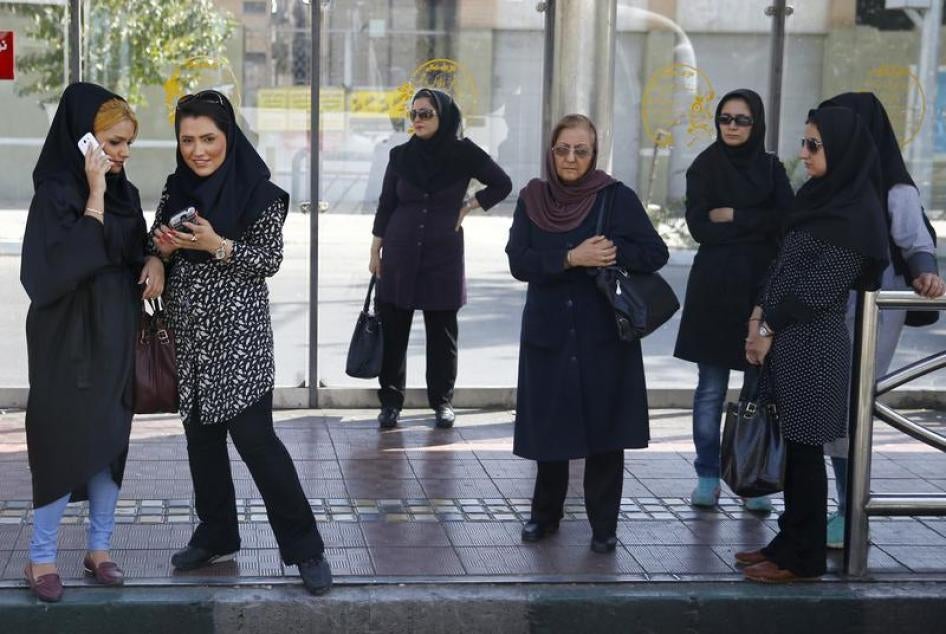HRW – On August 16, an appeals court upheld a decision issued against five human rights defenders charged with “establishing an illegal group” and “propaganda against the state” for attempting to hold the government accountable for its mismanagement of the Covid-19 crisis, Mostafa Nili, a human rights lawyer and one of the defendants, tweeted.
Branch 36 of Tehran’s revolutionary court ultimately sentenced Nili, as well as Mehdi Mahmoudian, to four years’ imprisonment, and a two-year ban from practicing law and a two-year ban from using social media, respectively. The court also sentenced Arash Keykhosravi, Mohammad Reza Fahighi, and Maryam Afrafaraz to one year in prison and a one-year ban from practicing law, 6 months in prison, and 95 days in prison, respectively.
Authorities arrested seven human rights defenders on August 14, 2021. Two rights defenders, Leila Heydari and Mohammad Hadi Erfanian, were released without charge after a few hours. Afrafaraz and Faghihi were released on bail on August 29, 2021.
However, authorities continued to hold Keykhosravi and Nili until December 2021. Mahmoudian is currently serving a four-year prison sentence he previously received on politically motivated charges of “propaganda against the state,” and “assembly and collusion to act against national security.” In an open letter, the three of them described rights violations they experienced in detention, including being placed in solitary confinement for over a month and denied access to their lawyers and families.
Before their arrest, all seven rights defenders were preparing to file a complaint against the country’s national task force against Covid-19, which included Iran’s supreme leader Ayatollah Khamenei, for its mismanagement of the pandemic response. Articles 170 and 173 of the constitution protect every citizen’s right to complain before a court when regulation of the government conflicts with laws or norms.
To read this blog post in Farsi, click here.
August 17, 202215:57 PM EDT
Share this via FacebookShare this via TwitterOther ways to share
Authorities Further Police Iranian Women’s Dress Code

In the past month, Iranian authorities have sought to implement new restrictions on women’s dress code and that further enforce he hijab and chastity laws. While according to Mohammad Saleh Hashemi Golpaygani, the head of the headquarters to promote virtue, the new policy will change not wearing proper hijab from a criminal offense to a fine, women who post pictures of themselves without a hijab online, according to the new policy, can face serious repercussions. For example, female government employees must have profile pictures that conform to laws on compulsory hijab or risk being fired. These changes come as authorities launch a renewed crackdown against women’s efforts to push back on compulsory hijab laws and women’s rights activists in Iran.
Over the past months, several videos in which security forces or other people use violence against women who do not comply with hijab laws have become viral on social media.
In one, two women are seen arguing over what appears to be one of them trying to force the other to comply with hijab laws. Following the publication of the video, on July 16 authorities arrested Sepide Rashno, the woman who was subjected to the harassment for not complying with compulsory hijab laws. On July 30, Rashno appeared on State TV apologizing to the other woman while looking pale and unwell. HRA reported prior to the televised confession, Rashno was taken to the hospital for internal bleeding. Iranian authorities have a long record of coercing detainees into making false televised confessions.
Authorities’ detention of Rashno and other women for their choice of dress has drawn widespread criticism and condemnation with hundreds of thousands of Instagram users posting their photos with the phrase: “Join us in unity: We oppose compulsory hijab.”
The recent clamp-down on women’s dress code is a stark contrast to the lack of action by the Iranian government to address key issues such as domestic abuse and the increase in femicides. The Iranian parliament has yet to adopt the draft law on “Protection, Dignity and Security of Women against Violence.”
 Shabtabnews In this dark night, I have lost my way – Arise from a corner, oh you the star of guidance.
Shabtabnews In this dark night, I have lost my way – Arise from a corner, oh you the star of guidance.



